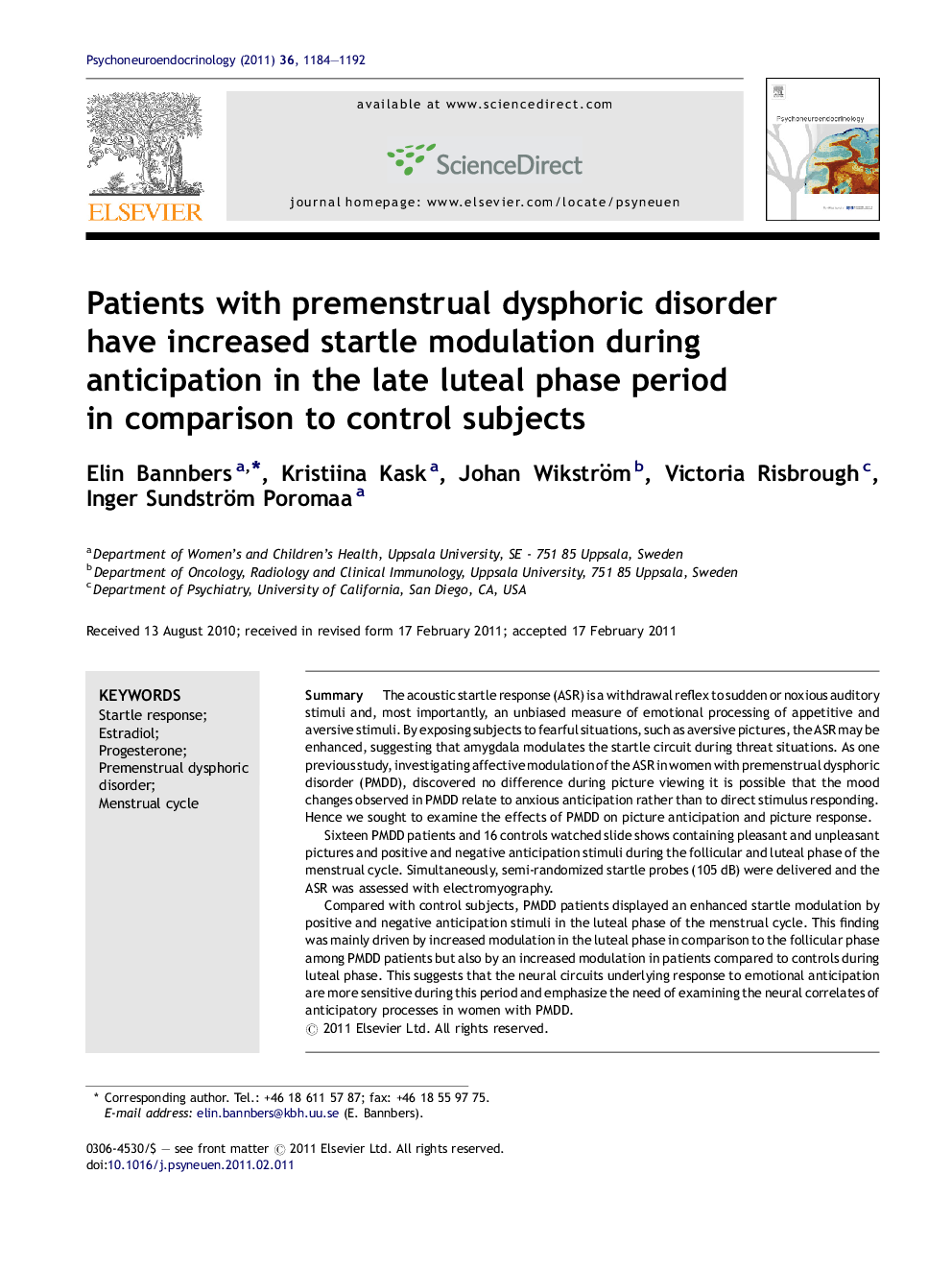| کد مقاله | کد نشریه | سال انتشار | مقاله انگلیسی | نسخه تمام متن |
|---|---|---|---|---|
| 335903 | 547049 | 2011 | 9 صفحه PDF | دانلود رایگان |

SummaryThe acoustic startle response (ASR) is a withdrawal reflex to sudden or noxious auditory stimuli and, most importantly, an unbiased measure of emotional processing of appetitive and aversive stimuli. By exposing subjects to fearful situations, such as aversive pictures, the ASR may be enhanced, suggesting that amygdala modulates the startle circuit during threat situations. As one previous study, investigating affective modulation of the ASR in women with premenstrual dysphoric disorder (PMDD), discovered no difference during picture viewing it is possible that the mood changes observed in PMDD relate to anxious anticipation rather than to direct stimulus responding. Hence we sought to examine the effects of PMDD on picture anticipation and picture response.Sixteen PMDD patients and 16 controls watched slide shows containing pleasant and unpleasant pictures and positive and negative anticipation stimuli during the follicular and luteal phase of the menstrual cycle. Simultaneously, semi-randomized startle probes (105 dB) were delivered and the ASR was assessed with electromyography.Compared with control subjects, PMDD patients displayed an enhanced startle modulation by positive and negative anticipation stimuli in the luteal phase of the menstrual cycle. This finding was mainly driven by increased modulation in the luteal phase in comparison to the follicular phase among PMDD patients but also by an increased modulation in patients compared to controls during luteal phase. This suggests that the neural circuits underlying response to emotional anticipation are more sensitive during this period and emphasize the need of examining the neural correlates of anticipatory processes in women with PMDD.
Journal: Psychoneuroendocrinology - Volume 36, Issue 8, September 2011, Pages 1184–1192